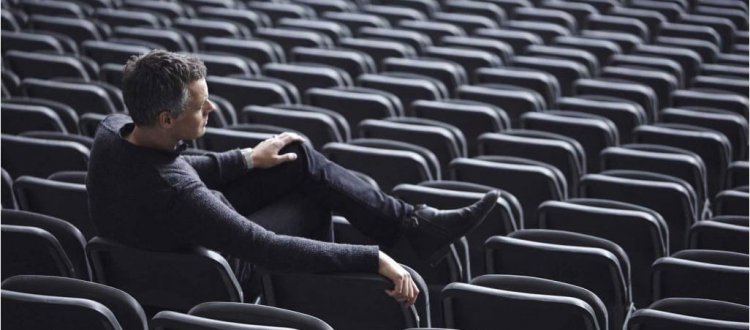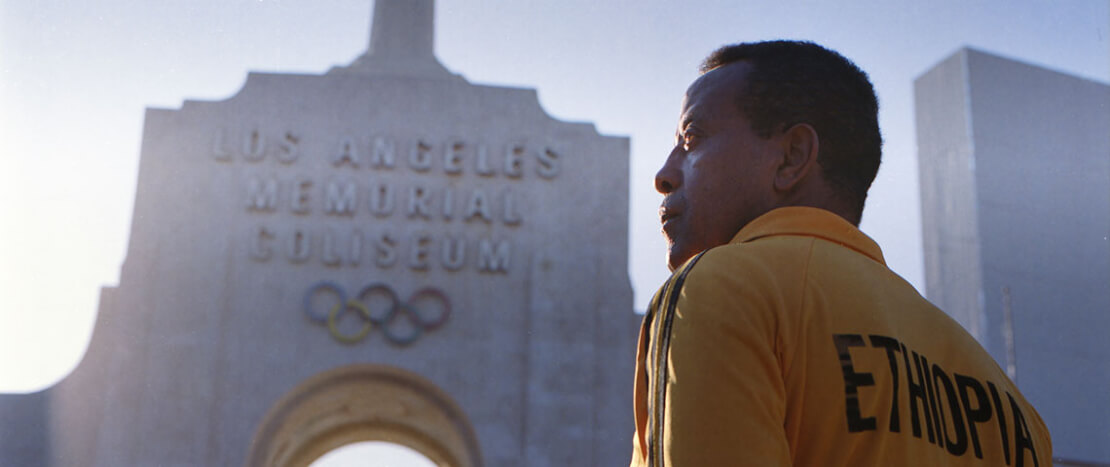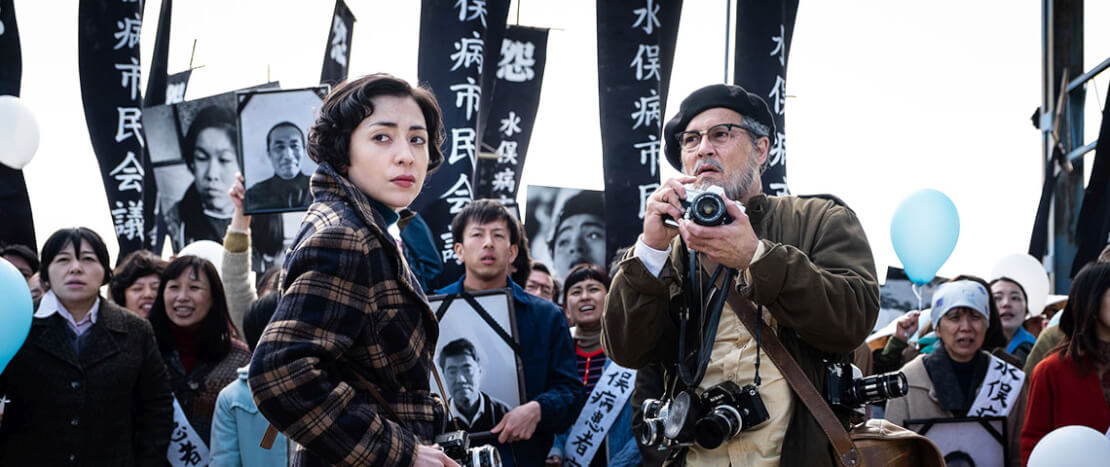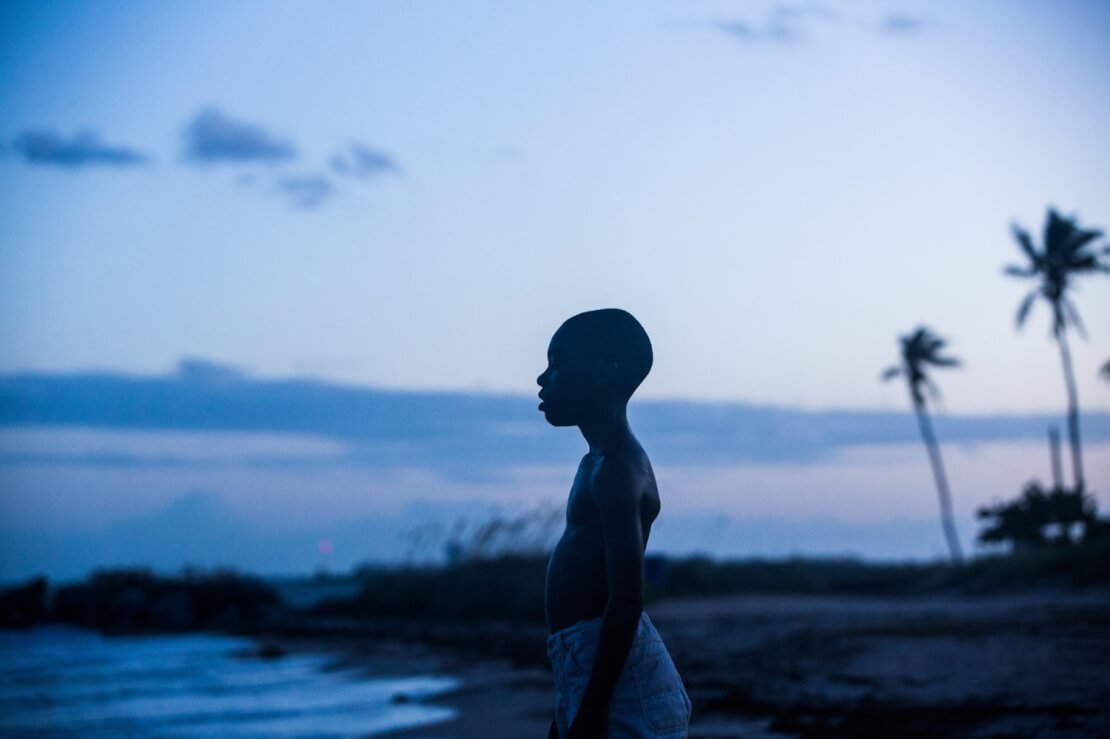TV vs Filmmaking with Director Florian Froschmayer
Moving behind the scenes, I had the chance to interviewing Florian Froschmayer, renowned writer and director of 17 TV movies, 46 episodes of primetime TV drama, writer of feature film scripts, and creator of filmmaking software ‘script to movie’.
”I see it as my obligation to protect the writer’s vision and his story…”
NSR
Welcome Florian. Where did you get the time to fit all this in?
Florian Froschmayer
I’m 48 years old, so I had some time.
NSR
OK, so for some people who might not be familiar with your work, how would you describe your style?
Florian Froschmayer
That’s actually very hard for me because I’m just a passionate storyteller and I’m always interested in a good story and I’m not sure if I have a style. People who have seen my work tell me they recognize my style. I don’t know what my style is. I just like to entertain people in various genres and various formats. As you said, I did series, I did features. I did TV movies, so I’m just I’ve always tried to not repeat myself too much, but it can be a hard thing when you’re doing crime stuff but that’s basically that’s what I’m looking for. Not to repeat myself.
NSR
Because that’s the kind of crowded genre. What drew you to that?
Florian Froschmayer
Basically in Germany, when you are doing TV (I started 20 years ago), there were only hospitals and crime stories on television. So, in German, we say “krimi or klinik”, which means “crime” or “hospital”. And so that’s basically the only two genres you have. I don’t know, I just made my first film in Switzerland. My feature was called Exclusiv and it was a thriller and it was inspired by Se7en and its look and so that’s that was my story. I was 24 years old and as was my reference, so it was obvious that I’m not going to do hospital TV series after that one. So I started out in the crime genre, and so once you’re in the drawer, you’re in the drawer and it’s hard to get out.
NSR
So, when you are starting out, when was the light bulb moment when you thought, “OK, this is what I want to do with the rest of my life”.
Florian Froschmayer
I can tell you that exactly. It was on December 28, 1985. It was the day I saw Back to the Future for the first time. And this was the moment where I decided “this is what I want to do”. And it was not, I don’t know, writing or acting at that moment. It was I want to do that as a director. I was like 13 years old and so my Paul McCartney was Robert Zemeckis at the time.
NSR
Got it. What attracted you to television drama rather than cinema?
Florian Froschmayer
That was not my way of thinking. I just wanted to make films, and I started in cinema because, in Switzerland, there is no TV industry. I’m born and raised in Switzerland, and my first film was a Swiss film. And if you’re starting out, you only can do shorts or you can do cinema. And so I went and did cinema. And then when I moved to Germany because I was eager to work in an industry in, the only industry you have is a TV industry. You have like five networks that are doing their own content and at the time, in the early 2000s, there was much more being shot here in Germany. So, that’s why it became TV. It was not a decision for either one or against either one. It was just that the opportunity was in TV.
NSR
Do you feel there’s anything you can do on TV that you couldn’t do in cinema?
Florian Froschmayer
Yeah, definitely. Especially when I started out with the first crime series. I could work consistently and I could try out stuff because I never went to film school. Basically, my early years of me doing series in Germany was my film school. I had the script and I had the actors and I had the professionals around me but still, even though I knew what I wanted, I was the inexperienced guy on set. I just tried to learn from everybody. I’m still do y’know? I still like to. If I’m visiting a set, it’s the best thing for me because I’m just observing people and learning.
NSR
What are the biggest challenges you ever faced, whether it be writing or directing, getting work?
Florian Froschmayer
Getting work.
NSR
[laughter]
Florian Froschmayer
[Laughs] I think when you’re starting out and you’re doing your own stuff, I think it’s financing. Of course, surviving. And then, once it becomes your profession and you’re making a living, it’s finding the projects that not only make your money but also the feel of it with passion for the story you’re telling. So, what I learned in the past years is to say “no” more. When I was younger, I was like, “Ok, I’m cool, I make it” because I just wanted to work, and at some point, I realized I have to be a little bit more picky in order to do better films. Because when you’re not writing your own script, there is a writer behind it that worked his ass off. And he deserves a director who sees his vision, his story and protects it. Of course, as a director, you have your own vision but in the end, the story comes first. And so, if I’m doing TV here, I see it as my obligation to protect the writer’s vision and his story. So, it became much more important to me to be picky. To pick those scripts which I really understand, where I really think I add value to the project.
NSR
So, given the explosion of TV production values over the last 20 years and certainly with the arrival of new studios like Netflix and Amazon, is it easier to get projects off the ground now compared to before?
Florian Froschmayer
From my perspective, I would say definitely “no”, it’s harder.
NSR
Why is that?
Florian Froschmayer
I have no numbers here to back that up, but my feeling is that the number of productions that were shot, let’s say in 2004 are still way higher than today. Especially if you look only at the German market you have, you have ARD, ZDF and Sat. 1. Those are the three networks that are doing the major amount of productions. In 2005, you had three, or maybe sometimes four other privately-funded networks who had like thew eir own content, 5 nights a week from 8 pm to 11 pm. Now, it’s all bought-in stuff. They don’t do original content anymore. So, with Amazon and Netflix, their volume in Germany is growing, but I would say it’s still like five shows a year, maybe seven. So, it’s not that much. It just feels more because you have two different streamers and everybody is doing one or two. And you talk about them a little bit more than you did 15 years ago. And then because every creative person now wants to work for Netflix or one of the streamers, so, it’s very hard to get in there because they are getting so many pitches.
NSR
What do you think about the binge culture as opposed to appointment TV? Because one of the things that I got from researching your work, certainly with Tatort. That very much was ‘appointment TV’, where people would arrange their evenings around their availability to watch a program at a certain time, as opposed to downloading and burning their way through a series in a couple of evenings.
Florian Froschmayer
Yeah, I guess it’s going to change everything in the long run. Also, it’s going to change how we are developing stuff. Because then you just have to fit a certain schedule, let’s say Tatort. It’s Sunday nights at 8 pm, it’s an institution for, I don’t know, 50 years now here in Germany, and people just tune in because they’re expecting something and they just want to have that. So you’re making a film for especially that slot. And then when the film is over at 9:45, everybody has forgotten it. So, it’s a one-watch experience. And then sometimes you have reruns and stuff, but when once the film airs for the first time, it’s basically done. For the streamers, you have to make content that is much more lasting because you don’t have your whole audience at one point. You have it over time. So, those are different stories and you need to be that good so that if I am seeing it today then I’m going to tell you tomorrow that I saw it. And you will remember that a week from now and then you will watch it.
Florian Froschmayer
I think if it just would put a Tatort into a streamer, it just wouldn’t work because it’s kind of always the same. It’s the same for that timeslot. It’s what’s we expect on Sundays at 8:15 p.m. So, I guess and it’s not a nice perspective but I think we are going to decrease in volume over time because those longer-lasting shows are more expensive to produce. The development is more expensive because you need to dive in more and you need more time to develop an eight-part mini-series than you need for a Tatort. It’s just a different ball game. There will be more money for one project, but because the money will be the same, there will be fewer projects. That’s what I’m thinking.
NSR
What do you look for in a potential project?
Florian Froschmayer
A good story. It’s just a good story that tells me something about me that I don’t know yet. And that entertains me, that makes me cry and that makes me laugh.
NSR
So, in that scenario, you’re the first audience.
Florian Froschmayer
Yeah.
NSR
And you’re making the film for you or specifically for an audience? Do you see it with the audience’s eyes or do you see it with your own?
Florian Froschmayer
I only can see it with my eyes [laughs]
NSR
[Laughs] OK.
Florian Froschmayer
No, actually, it’s an interesting question, because when you are in development, and then later when you’re in post-production, you have a lot of conversations with the producers and the network but it’s what the audience thinks. I have no idea what the audience thinks because I’m not the audience. I’m just me and I know what I feel and because I think I’m an average guy, so maybe I think like a lot of the audience, but I’m not making the films for me. Because when I’m finished, I actually very rarely watch them again because, for me, the process of making is the fun. Because by the time they’re finished, I’ve seen them like 80 times, so I have seen them. It’s different with a film. I’m just consumed. Because you give so much of yourself to a film that I have to be the first audience, and I have to like, find something for me that hooks me so I can give something to that.
NSR
Got it. Do you see yourself drawn more towards developing your own projects and writing as opposed to directing?
Florian Froschmayer
The older I get, the more I want to have control of my stuff. It’s more of this, and to have control over your stuff. You need to be involved in the development process because control starts with development. On the other hand, I love directing and I love the industrial aspect of filmmaking. For me, I have a blast. If some producer comes to me with a TV movie and I have four weeks of prep, four weeks shoot and I have three weeks post, that can be so much fun. And the result can be so cool. It’s a hard question [laughs].
NSR
OK. How about this? Who would you like to work with next? Who would be your dream casting?
Florian Froschmayer
German or international?
NSR
Both. Both. Um.
Florian Froschmayer
That’s hard.
NSR
I’m intrigued to see who you would suggest and what you would do with them. I was watching the episode of Tatort with Antoine Monot jr., and my immediate reaction was you’ve turned Saturn’s Tech-Nik into a serial killer and he’s this cute, cuddly guy.
Florian Froschmayer
Yeah, because you know, I knew Antoine before he was the Saturn’s Tech-Nik. And an actor like Antoine, who I know back from Zurich days in the early 90s, Antoine is, on the one hand, a physical guy and then, on the other, he’s just an open mind. For me, an actor who is just open to try out, to be vulnerable, just to let him fall into a story… That’s the most fun for me as a director. It was actually a dream of mine was to work with Mišel Matičević, who is a German Croatian actor who was also in that film with Antoine. He’s also such a force and that’s so much fun to work with.
NSR
So what’s your next project? What are you looking forward to?
Florian Froschmayer
There are several things are flying in the air and nothing is actually concrete at the moment. I’m finishing up a film I did in November. I shot in November in Portugal. We are in post-production. And like in four to five weeks from now, we have the final mix and then the film is done. I am developing a script for a Swiss company, a feature film for the big screen which I am writing and directing. If we find the financing. So, we’re on a good way, but it’s still hard with those kinds of films. It’s hard. You never can say if they’re going to happen or not. I think it’s a very cool project and I would love to do it, but I have no idea if it’s going to happen or not. And yeah, that’s the two things that are concrete at the moment. Everything else is just floating and waiting to be picked up.
NSR
Perfect. Well, thank you so much, Florian, for coming on the show.
Florian Froschmayer
Thank you for having me.
NSR
And thank you for sharing your insights with us. All the best for 2021.
Florian Froschmayer
Same to you.
NSR
Thank you.
Florian Froschmayer
Cheers.




